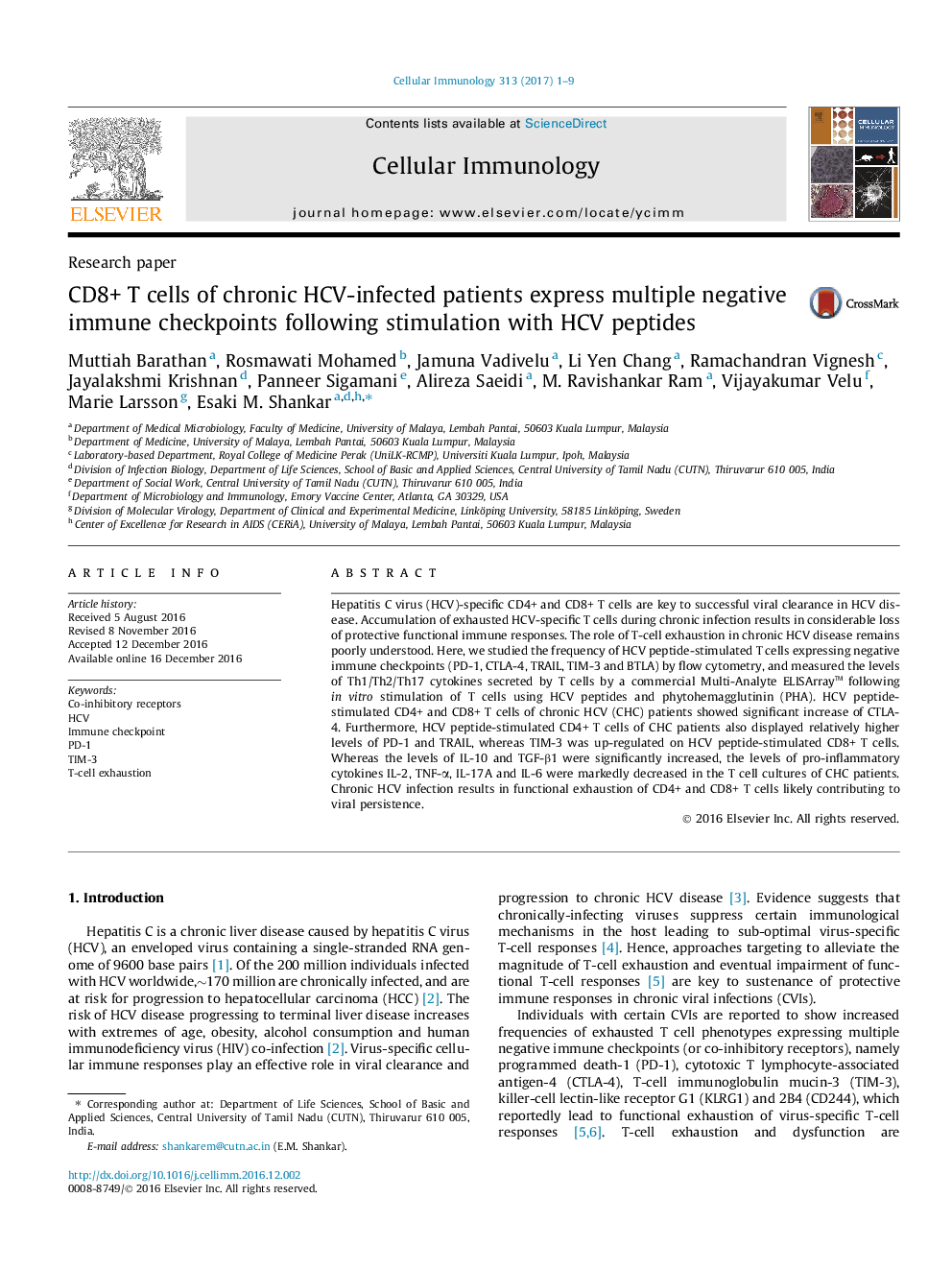| Article ID | Journal | Published Year | Pages | File Type |
|---|---|---|---|---|
| 5530759 | Cellular Immunology | 2017 | 9 Pages |
â¢HCV peptide-specific CD4+ and CD8+ T cells are key to successful viral clearance in HCV disease.â¢HCV peptide-specific T cells of chronic HCV patients had significant increase of CTLA-4.â¢The levels of IL-2, IL-17A and IL-6 were decreased in the T cell cultures of chronic HCV patients.â¢Chronic HCV disease results in functional T-cell exhaustion likely assisting viral persistence.
Hepatitis C virus (HCV)-specific CD4+ and CD8+ T cells are key to successful viral clearance in HCV disease. Accumulation of exhausted HCV-specific T cells during chronic infection results in considerable loss of protective functional immune responses. The role of T-cell exhaustion in chronic HCV disease remains poorly understood. Here, we studied the frequency of HCV peptide-stimulated T cells expressing negative immune checkpoints (PD-1, CTLA-4, TRAIL, TIM-3 and BTLA) by flow cytometry, and measured the levels of Th1/Th2/Th17 cytokines secreted by T cells by a commercial Multi-Analyte ELISArray⢠following in vitro stimulation of T cells using HCV peptides and phytohemagglutinin (PHA). HCV peptide-stimulated CD4+ and CD8+ T cells of chronic HCV (CHC) patients showed significant increase of CTLA-4. Furthermore, HCV peptide-stimulated CD4+ T cells of CHC patients also displayed relatively higher levels of PD-1 and TRAIL, whereas TIM-3 was up-regulated on HCV peptide-stimulated CD8+ T cells. Whereas the levels of IL-10 and TGF-β1 were significantly increased, the levels of pro-inflammatory cytokines IL-2, TNF-α, IL-17A and IL-6 were markedly decreased in the T cell cultures of CHC patients. Chronic HCV infection results in functional exhaustion of CD4+ and CD8+ T cells likely contributing to viral persistence.
